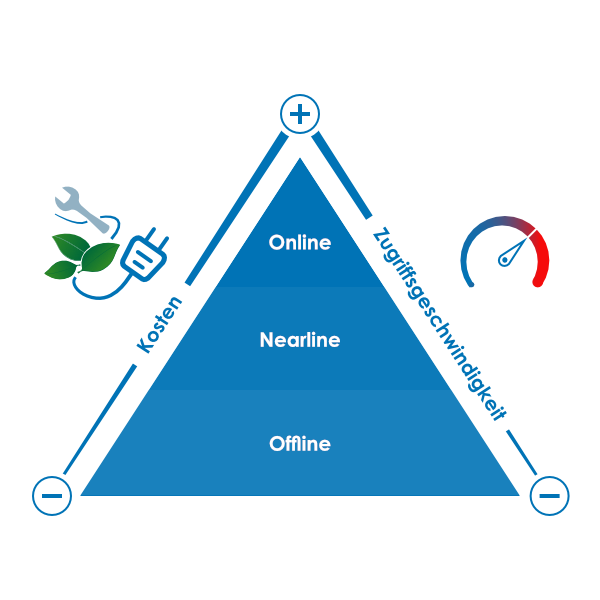The eternal spiral - The larger and cheaper hard disks become, the faster the amount of data we have to store on them grows. Although hard disk storage systems can be virtually extended to almost infinity, at some point you come up against physical limits, be it the space in the data center, the performance of the air conditioning system, or ultimately the power consumption, which, especially with older systems, knows no limits in the 24/7 use of the systems in extension.
This is where data management solutions come in, which INCOM has been offering successfully for more than 10 years with software products like today's PoINT Storage Manager, QStar Data Director and many other manufacturers. The software monitors the relevant data area and moves data from online to nearline storage, which usually consists of one or more optical libraries, according to predefined rules.
A link is left behind on the original data carriers, which refers to the new storage space of the file within the system. If you open the file, the only difference is that this takes a little longer, because the Jukebox first has to transport the corresponding medium into a drive, read the file and deliver it. An intelligent caching automatically reads subsequent data, which is stored in a ring cache. This shortens the delivery time of these, for example when browsing through old invoice or delivery note files, immensely.
The advantages of optical libraries are manifold. In addition to the long shelf life of the media of 30-50 years and more, the power consumption is particularly noticeable. Once written, the media are stored in the box with virtually no power consumption and also generate no heat, which has to be cooled down with expensive air conditioning systems, as hard disks are always rotating. Service and migration costs are also a cost factor that should not be ignored. While defective hard disks and tapes have to be replaced and copied, libraries only need to have their drives replaced every few years at the most, but this does not affect the archived data or the operation of the box.
These advantages prompted Facebook 2014 to work with HIT Libraries to further develop the system and use it for archiving in the data center
